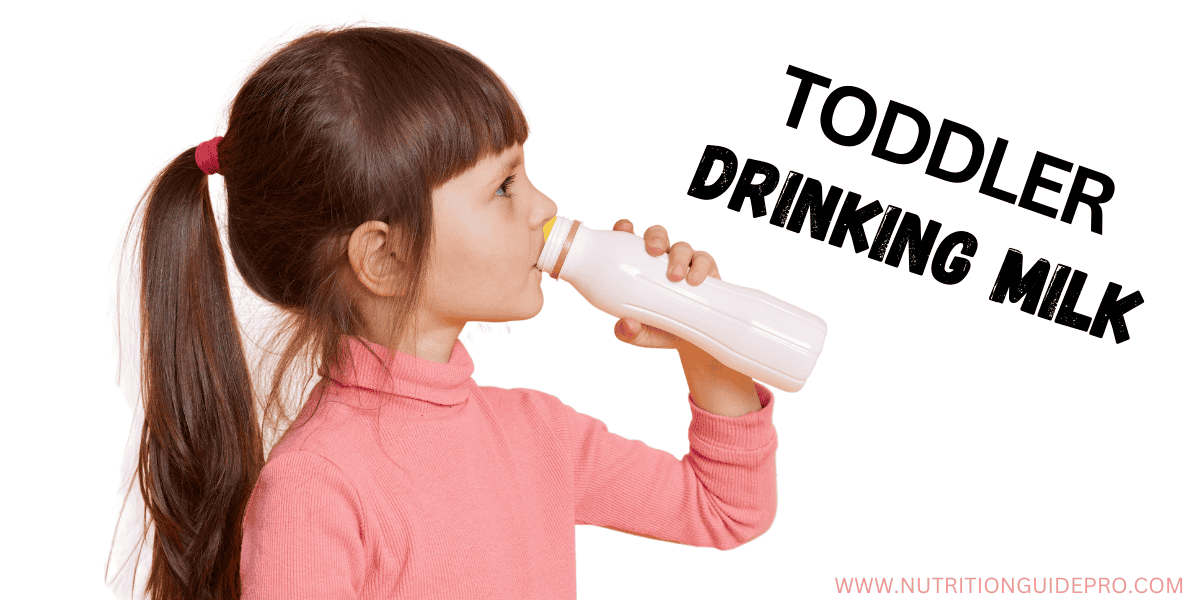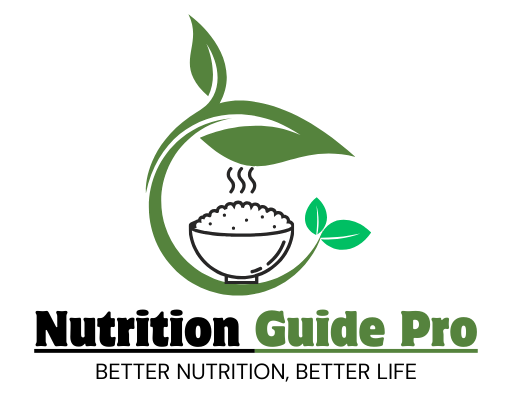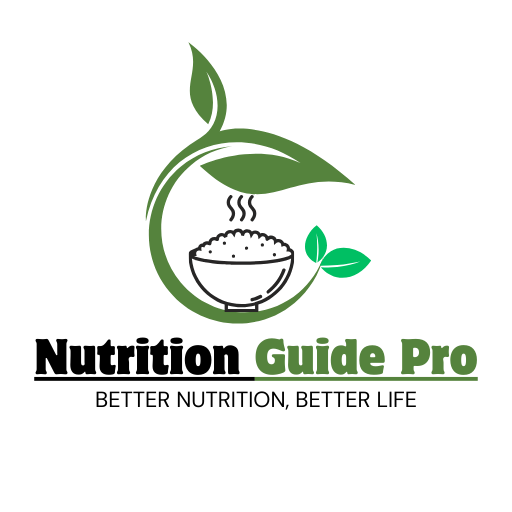It’s frustrating when your toddler won’t eat food only drinks milk, and it can feel like picky eating is getting even worse. The common problem of toddlers drinking too much milk can leave you wondering if they’re getting enough of other foods.
Step-by-step, you can help your child by introducing more foods and addressing potential medical issues, like food sensitivity or a viral illness. It’s important to remember that children may be expressing a preference for certain foods, and it can be tricky to navigate.

Sensory problems may also contribute to their reluctance to try new things. If you feel defeated, know that moderation and encouraging positive eating habits can turn things around. At times, it’s normal for a young child to have periods of refusing food, but keeping an evaluation of their overall intake and developing a healthy relationship with food will set them on the best path down the road.
Is It Normal for Toddlers to Refuse Solid Foods?
It’s normal for your toddler to sometimes refuse solid foods. This can happen when they are more comfortable with the texture and flavor of milk, which feels like a safe food to them. You can expand their accepted food range by offering familiar but new foods alongside a side of fruit or their favorite meals, like a simple banana.
Regular family dinners where kids see others enjoying food can also help build trust in trying different foods, making mealtimes more fun and less stressful for both you and your little one.
Understanding Toddler Eating Habits
What Is Normal Eating for a Toddler?
When it comes to toddlers, their food intake can be very different from that of adults. An active toddler typically needs about 1,000 to 1,400 calories a day, but how much they eat can vary. Some days, they may not eat much food at all, while on other days, they might seem to be eating constantly.
What matters most is that over the course of the week, their intake balances out. Milk and other dairy products remain essential sources of calcium, but parents should ensure that their child isn’t relying solely on milk.
- Selective Eating
Toddlers often go through phases of selective eating, where they favor certain foods and avoid others. This stage can stay the same for a short duration or change over time. At the start of their life, babies are naturally drawn to sweet flavors, a preference that comes from breast milk. This early preference for sweets makes them keener on sweet tastes compared to adults, but this can decline as they reach adolescence and begin to learn to enjoy more savory options.
Copying parents, siblings, or other family members plays a big role in helping them explore a wider array of foods. Protein Options for Choosy Eaters can be introduced when they observe their parents, siblings, or family members enjoying these foods. When children mirror the behavior of their family, they might start trying new foods or sticking to their favorites. Having a well-stocked variety of food at home encourages toddlers to gravitate towards trying new options while growing up.
Why Did My Toddler Stop Eating?
If your toddler has suddenly stopped eating, it can be a confusing time, but it’s a normal part of toddler life. At this stage, toddlers often focus on other activities like playing instead of food, and sometimes they may not feel hungry at the start of the meal.

A pediatrician can reassure you that as long as your child is growing, reaching milestones, and gaining weight, there’s no need for serious concern. Toddlers often go through phases, where they are obsessed with certain foods like blueberries for a week and then lose interest for the next two months. It’s possible that teething or being tired also plays a role in their appetite, and if they’re drinking too much milk or juice throughout the day, they may not feel hungry for food at mealtime.
To help, try offering a snack about 30 minutes before a meal, and experiment with serving foods in new ways, like cutting carrots into sticks or rounds. This approach taps into your toddler’s natural curiosity and can make eating more fun. Remember, it’s normal for toddlers to taper off their intake later in the day after being hungrier earlier in the day.
How Picky Eating Comes from Drinking Too Much Milk
Toddlers who prefer milk over other foods often develop picky eating habits, which can make introducing solid foods challenging. When a child is mostly drinking milk, they might feel less inclined to try new tastes or textures like steamed carrots. This leads to a cycle where the toddler becomes a picky eater, sticking to familiar or favorite foods and even refusing to eat other options.
Many parents notice their toddler’s behavior change when they show a clear preference for milk and begin to refuse solid foods. This can also be due to food neophobia, where the child is afraid to try new things and sticks to what they know.
If a picky eater struggles to chew food or feels discomfort, it may be another reason why they turn to milk, reinforcing their picky eater behavior. This behavior can be difficult for parents, but understanding this point in development is key to helping them overcome their milk refusal and try new things without fear.
Reasons Toddlers Refuse to Eat
- General Coughs and Colds
When your toddler is coming down with a cold, it’s common for them to refuse to eat as they feel generally unwell. Don’t panic if your child who just started nursery for the first time suddenly loses their appetite—focus on offering fluids and plenty of rest until they regain their appetite.
Offering pre-planned meals and small snacks can help once they feel well enough to eat again. Worry less if they won’t eat while they’re unwell, as most kids bounce back once they feel better.
- Constipation in Children
Constipation can make fussy eating worse for children, as they might not feel hungry if they haven’t opened their bowels in a few days. When kids pass hard rabbit pellets or go fewer than three times a week, their appetite is affected.
To help with this, you can try gut-friendly foods or natural solutions, but a medical doctor may also prescribe laxatives if needed. Once your toddler starts having soft poop more regularly, their appetite will likely improve dramatically.
- Overtired After Nursery or School
Young children often have a low appetite in the evening after a full day at nursery or school. According to Ellen Satter’s division of responsibility, the parent should provide nutritious meals at regular intervals with planned meals and snacks, but the child should decide how much to eat.
If your toddler says they’re not hungry, it’s recommended to offer food at the dining table without pressure and ensure they feel supported by joining them for meals at these set intervals throughout the day.
- Medical Issues That Impact a Toddler’s Eating
When toddlers are ill, their appetite can significantly drop, leading to a lack of appetite and a refusal to eat. Some medical issues are described below:
| Medical Issue | Description |
| Teething | Causes discomfort, making it hard for toddlers to chew and swallow. |
| Constipation | Can lead to abdominal pain, discouraging eating. |
| Viral Infections or Fever | Might leave toddlers feeling too weak to eat. |
| Food Allergies and Sensitivities | Can cause symptoms like a sore throat or swollen esophagus, making eating painful. |
| Gastroesophageal Reflux Disease (GERD) | Causes discomfort and reluctance to eat due to a raw and painful throat. |
| Celiac Disease | Requires avoiding gluten (found in wheat, barley, and rye), leading to significant refusal to eat if not managed properly. |
As a parent and nutrition consultant, I’ve seen many toddlers who struggle with eating due to these underlying health concerns, so it’s important to monitor their health and seek medical advice if needed.
Why Does Your Toddler Refuse to Eat?
It’s normal for a toddler to go through phases of not eating much. Sometimes they might seem hungry, but when it’s time for a meal, they could flat-out refuse food or even throw it on the floor. This behavior is a part of their developmental stage, where they test boundaries and learn to communicate their needs, even if they can’t find the right words yet.
You may expect them to finish a whole plate or eat a certain portion size, but they might just want a few bites or even leave most of it behind. This immensely frustrating experience can happen for a week or longer, especially if their growth slows down.
How to Encourage Your Picky Toddler to Eat?
Getting your toddler to eat can be a challenge, especially when they prefer their favorite foods like milk over other options. One effective approach is to trust your child’s preferences and let them decide what they want to try during mealtime. You can make the experience enjoyable by including a variety of foods on the table.
Consider incorporating items like fruit and cheese that your child likes. Set the table together, making it a fun activity where they can help with prep, like washing veggies or using mini tongs and a salad fork to serve themselves. This not only promotes independence but also encourages them to experiment with new tastes without the pressure of prodding or cajoling.
As a parent, I found that the Division of Responsibility in Feeding is a GAME CHANGER. This means I take responsibility for what to serve while letting my child decide how much to eat.
It’s essential to respect their hunger and fullness cues. Rather than forcing meals, create an environment where family meals are shared, and different foods are available. By removing the external cues that often lead to overeating or refusal to eat, toddlers can learn to listen to their own hunger signals, helping them establish a healthy relationship with food from a young age.
Addressing the Issue: Encouraging Balanced Eating
- Tips for Dealing with a Child’s Food Refusal
When a toddler shows a refusal to eat, it can feel like a battle of wills for parents. Instead of making mealtime a struggle, try using some strategies that encourage a variety of foods. You can start by offering one new food per day, serving it in small amounts—about 1 tablespoon.
As children grow, their appetite can change, and introducing new ones alongside familiar favorites can help. You might even mix or hide the new food within their favorite condiments like ketchup to make it more appealing. Remember to praise your child when they try new foods, but avoid putting too much pressure on them.
If they refuse, it’s okay; just stay calm and wait for the next mealtime when they might feel hungry enough to eat. Creating a relaxed atmosphere can make a big difference in their willingness to explore new tastes without the fuss.
- How Parents Help Toddlers Who Refuse to Eat Anything But Milk
When you’re a mom, watching your toddler insist on drinking milk all day can be a real struggle. It’s an understandable scenario that many parents face, especially when your child refuses to eat anything at mealtime. You might find yourself fussing over what to serve for lunch, only for them to demand that cup of milk instead.
It’s easy to feel worried and cave in, thinking at least they’re getting something. However, it doesn’t have to be like this! By being attentive to your child’s needs, you can gently encourage them to explore different foods. Try to stand firm and offer meals that are fun and colorful, making them more appealing.
Even if they only take a few bites, it’s a decision worth making. Remember, it’s all about creating a positive atmosphere around food and helping your little one navigate their preferences while you remain patient and loving throughout the day.
- How Can I Increase My Toddler’s Appetite?
If you’re worried that your toddler isn’t eating enough, remember that it’s common for kids in this age group to go through phases with their appetite. It’s important to ask questions about their growth and check if they’re following a consistent growth curve. Each child has a unique history and a speed of growth that can affect how much they want to eat.
Instead of stressing over the perfect amount, try to adjust your expectations and offer smaller servings or snacks throughout the day. Involving your child in the kitchen can also make mealtimes more enjoyable and help them explore new foods. Adding healthy fats to meals can aid in weight gain and make foods more appealing.
A chocolate protein shake can be a tasty option that offers nutrition without pressure. If you ever feel that your toddler is losing weight or there’s a medical concern, consult your pediatrician to create a plan that works for your little one.
Do Toddlers Have to Drink Milk?
It’s common for toddlers to refuse to eat solid foods and prefer to drink milk. While milk is a great source of protein and fat, it’s important to ensure your child is exposed to a variety of diets. As a parent, you are in charge of offering different meals so they can slowly learn to enjoy other options, rather than becoming dependent on just milk from cups.
Encouraging Positive Eating Habits
To encourage positive eating habits, it’s essential to set a good example for your toddler. Show them the joy of eating a variety of foods from different food groups. During mealtimes, try to eliminate distractions like the TV and cell phones, creating a safe, collaborative place where everyone can enjoy their meals together.
Involve your little one in meal planning by exploring new food choices at the grocery store. Let them help toss ingredients in a plastic bowl or mix them, making mealtime more interactive. To keep things enjoyable, try to serve snacks and meals at the same time each day.
Giving a five-minute heads up before meals can prevent the mad dash to the table. Make the dinner table a place for family bonding where you can talk about your child’s day. This way, you turn mealtime into an enjoyable routine that promotes healthy eating habits.
When to Seek Professional Help
My Toddler Won’t Eat Because He’s Sick. Should I Worry?
When toddlers are sick, it’s normal for their appetites to decrease. As a general rule, many kids won’t want to eat when they are unwell, and this can be a red flag for parents. If your little one is drinking more than usual, don’t push food on them; instead, offer simple and nutritious options.
It’s important to keep in mind that little bodies can be quite sensitive during illness, and they might prefer liquids like smoothies or yogurt for babies. If your toddler seems to linger on not eating, consider teething as a possible reason, especially if they are cutting teeth or getting their molars. Foods like Alphabet Pasta, Strawberry Popsicles, or chilled foods can be soothing for their sore gums.
It’s always wise to consult your pediatrician if you’re unsure or if your child isn’t bouncing back, as they can provide reassurance and advice on the best foods to offer during this time. Remember, the key is to listen to your toddler’s needs and encourage normal eating habits as they start to feel better.
Bottom Line
Understanding why your toddler may prefer milk over solid foods is crucial for addressing their nutritional needs. It’s normal for toddlers to have fluctuating appetites, but consistent refusal of solid foods could indicate underlying issues such as health concerns or sensory preferences. Parents can encourage balanced eating by introducing a variety of foods in a positive manner, ensuring that mealtimes remain stress-free and enjoyable.
Frequently Asked Questions (FAQs)
Why is my toddler only drinking milk and not eating?
It’s normal for toddlers to go through a picky eating phase, but if your little one is only drinking milk and not eating, it may help to consult a doctor or pediatrician to rule out any underlying causes like gastrointestinal disorders, swallowing problems, or food sensitivities. Keep in mind that conditions like constipation and even autism can affect their eating habits, so being aware of these factors is important as you navigate this normal phase.
What to feed a toddler who won’t eat?
If your toddler only wants milk, try offering nutritious foods like fruits, vegetables, and whole grains in small portions to help them explore different tastes. Encourage them to ask for more and mix in some protein and dairy to balance their diet, allowing them to feel in control of their eating habits.
Is it normal for toddlers to not want to eat anything?
It’s completely normal for children between two and five years of age to show a decrease in appetite as their food consumption often moderates to match a slower rate of growth. While parents are responsible for the foods they offer, the child decides how much to eat, so it’s important to reassure yourself that this behavior is just part of their development and explain it to others.



